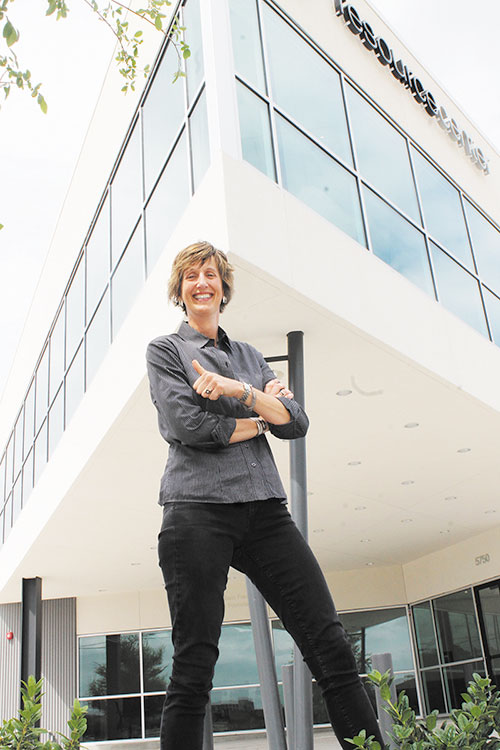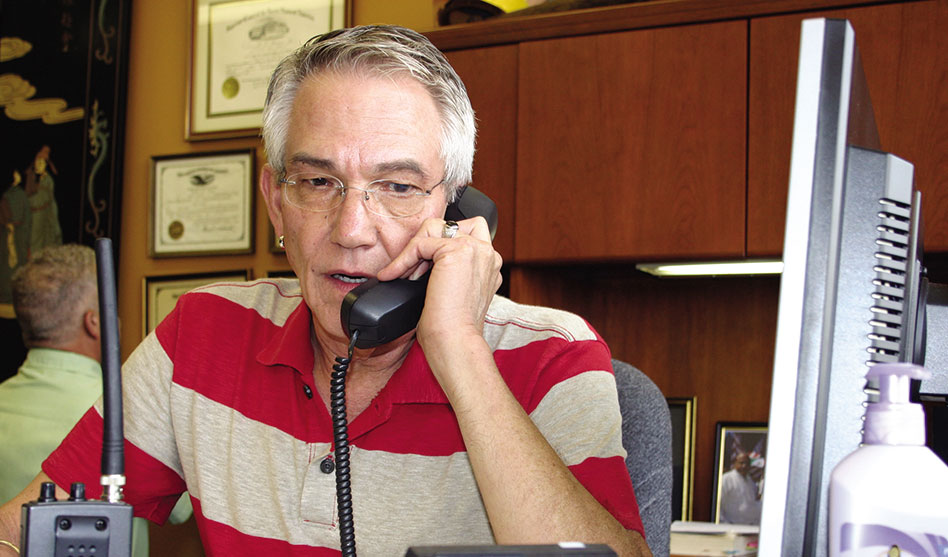Don Maison
What we learned from the AIDS epidemic is what most people need to hear, but too many won’t listen
DAVID TAFFET | Senior Staff Writer
taffet@dallasvoice.com
When asked, doctors, politicians and pundits on TV routinely insist this COVID-19 pandemic is like nothing we’ve seen in our lifetime.
Really? Are you sure about that, Doc?
Because I keep having flashbacks to the early 1980s and the onset of the AIDS epidemic. Tens of thousands died in that epidemic, many of them before government leaders were even willing to say the word “AIDS.”
But we learned a lot from those decades of fighting HIV and AIDS, and those lessons apply to the current situation — if we will just listen to them.
For instance, social distancing is COVID-19’s safer sex. Just as safer sex reduced transmission of HIV, social distancing is reducing transmission of novel coronavirus.

Cece Cox
Resource Center CEO Cece Cox said she was talking recently with one of her agency’s younger employees about the AIDS crisis and how it affected her. At the end of the conversation, the younger Resource Center worker told her, “I wondered why you’re so calm” in the face of the COVID-19 pandemic.
Cox compared the two epidemics: “There is the shock of a mysterious virus that is circulating,” she said. “And we’re going to lose people.”
But she remembers clearly back to the days of the height of the AIDS epidemic and how the LGBT community came together to care for each other. She remembers fighting for funding and legislation, and she remembers the fear and hatred directed toward our community.
But Cox also recalls the compassion that built housing for people living with HIV; she remembers the food pantry that still feeds people that started as a shelf in Crossroads Market — and more.
And she remembers that together, we came through the crisis. “Some days I find it comforting,” she said. “Sometimes I feel grief.”
Thinking back on those earlier days of the AIDS pandemic, Cox had some advice on dealing with today’s crisis, starting with urging people to follow the CDC’s social distancing guidelines.
During the AIDS epidemic, safer sex controlled spread of the virus in our community. Social distancing is working in the coronavirus pandemic.
“It’s inconvenient to all of us, but this is a serious health threat,” Cox acknowledged. But, she added, “Social distancing is what we must do. We have to make this sacrifice.”
Cox said she worries about people in countries that don’t have the health care and the modern conveniences we have. “We’re going to see images from countries that don’t have the wealth this country has,” she said. “To complain about having to stay in our houses is a luxury most places in the world don’t have.”
Don Maison is the retired CEO of AIDS Services Dallas. He said the difference between the AIDS crisis and coronavirus pandemic is that the current epidemic is affecting so many more people.
During the AIDS crisis, most people “didn’t have to care,” he said. But now, everybody does. That’s the difference between an epidemic and a pandemic: An epidemic spreads over a certain population or a particular area; a pandemic threatens an entire continent or the entire world.
The U.S. didn’t care about the coronavirus when it was confined to one city in China, just as most people didn’t think they had to care when AIDS was running rampant only in the gay community.
Maison said another thing that’s similar about the two epidemics is the lack of leadership at the top. “Leadership matters, nationally and locally,” he said.
With the AIDS pandemic, nationally people like Dr. Mathilde Krim and Elizabeth Taylor stepped up to raise money and lobby Congress during the AIDS epidemic, Maison noted. Locally, he added, when Ewing, ASD’s first residence, opened in Oak Cliff, the city “welcomed” the facility by slapping it with 13 citations.
Local political support came only from County Commissioner John Wiley Price, who stood up to the four Republicans that made up the rest of the commissioners court. On many occasions, Price pointed his finger in their faces and called them bigots when they’d vote to deny funding for AIDS. On a second vote, he’d usually get his way.
Price became the one elected official singlehandedly responsible for making sure Parkland Hospital was providing care to people with HIV.
Statewide, now-U.S. Rep. Eddie Bernice Johnson, who was at the time serving as a senator in the Texas Legislature, wrote the first bills helping people with HIV. Now, in addressing the coronavirus, she has stepped up to address the medical rather than economic side of the epidemic in the same way she did for AIDS decades earlier.
The U.S. president is insisting that one particular drug is the cure for COVID-19. But Johnson, as chairwoman of the House Science, Space, and Technology Committee, has called for funding actual scientific research. She included financial support for federal research agencies in the recently-passed CARES Act that also provides business loans, unemployment insurance and other economic stimuli.
“This bill addresses the crisis in another significant way that has not received much attention,” Johnson said. “It includes support for research activities that will be critical to finding effective treatments for COVID-19.”
Cox said she can see both good and bad coming out of the COVID-19 pandemic. “Lack of national leadership is literally killing us,” she said. “But an amazing opportunity can come out of this.”
She said we want to hear compassion from the president; she wants to hear him reassure the country. But it’s not reassuring when we see health professionals rolling their eyes while the president speaks.
On the other hand, Cox said she is optimistic. “People are reaching out in ways they never did before,” she said. “People are actually having conversations [with each other] on the phone.”
As the AIDS crisis did to bring the LGBT community together, we can emerge from the coronavirus pandemic as a nicer and safer world.


